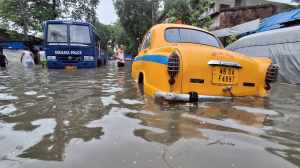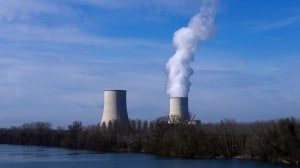Why the greatest show on earth will be different this time
A month from today, the greatest show on turf kicks off in Germany, the weight of a billion expectations on its shoulders. It’s a heavy burden — such huge sporting events don’t always live up to the hype.

A month from today, the greatest show on turf kicks off in Germany, the weight of a billion expectations on its shoulders. It’s a heavy burden — such huge sporting events don’t always live up to the hype. The last World Cup was an embarrassing procession of big names exiting at the early stages and, while David beating Goliath is great for the romance of the sport, it’s simply not good football if Goliath doesn’t pick himself up and carry on.
WC 2002 was salvaged by moments of individual brilliance, such as Ronaldinho’s goal against Brazil, the cameos by the two hosts with Senegal and Turkey (add Ireland’s Damien Duff to the mix) and the genuine good vibes spilling out from the stands and into the streets. It was a democratic tournament, on the field and off it, till Brazil re-established the rule of law — though they were winners by default.
Will Germany 2006 be better for football? At the risk of second-guessing sporting fate — never a wise option — the answer would be yes. There are five ways WC 2006 will be markedly different to the previous one:
LOCATION, LOCATION, LOCATION
• And timing. Football is Eurocentric; with few exceptions, the world’s best footballers either come from, or ply their trade in Europe. Average temperatures in Germany will be 8-10 degrees Centigrade lower than in Japan and Korea, a climate that will appeal to players from all continents. Most of the European teams — England, famously, against 10-man Brazil — just couldn’t cope with Asia’s heat and humidity. The other problem was that WC 2002 began just 16 days after the European season began; that’s just a fortnight between Zinedine Zidane scoring his wondergoal in the Champions League final and taking on Senegal in the World Cup opener. This time, the gap is much more — a minimum of 23 days.
THE TALENT POOL
• The sheer spread of young talent up for display is breathtaking. Brazil alone has an entire front six (and that’s minus Robinho) whose parts may not be new but whose sum surely is. Argentina, too, have the prodigious Messi in addition to their (relatively) lesser stars, Tevez and Riquelme. And then there’s the European brigade: England may not have Rooney but they have Joe Cole; Germany have Podolski, Spain Fabregas, Portugal Ronaldo and Deco, Sweden Ibrahimovic. Don’t forget Africa: Essien, Eto’o, Adebayor, Kolo Toure. And this is even before we get to Theo Walcott.
THE COMPETITION
• Brazil won in 2002 simply because, even though they weren’t sparkling, no other team was anywhere close to being as good. On paper, France were the closest but they left their brio back in Paris. This time around, the contest comes from several teams. Argentina, for one, who have a better balanced team, and a much stronger defence. England, if they can get over losing Rooney; Holland, sadly missing the last time around; Italy, even with their attendant baggage; France, who owe us all one last hurrah; Germany, streaky but strong on home turf. If Brazil implode, there’ll be many in the queue to replace them.
THE DRAW
• Going by seedings, and expected state of play, the draw itself throws up some great contests. Here, if all goes to plan, is what the quarter-finals could look like: Germany vs Argentina, Italy vs France, England vs Poland or Netherlands, Brazil vs Spain. The winners of the two pairs of matches face each other in the semis. Even if the form book is thrown away, the presence of five first-timers (Angola, Togo, Ivory Coast, Ghana, Serbia) would be enough to look forward to.
HOOLIGAN HORRORS
• This is where Japan/Korea could have the edge over Germany. Hooliganism is a major fear at this year’s tournament, the host nation having more than its fair share in addition to the hordes from England and Holland. The last World Cup saw not a single riot, almost no arrests for violence. It won’t be the same this time. And there’s always the spectre of terrorism.
jayaditya.gupta@expressindia.com
Photos


- 01
- 02
- 03
- 04
- 05





























